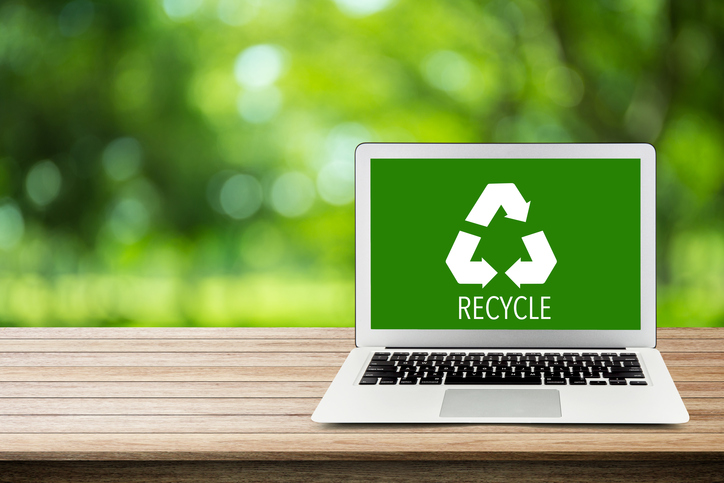In the wake of Black Friday, Cyber Monday, and the January sales, people are buying more computers and smart devices than at any other time of the year. But in the New Year’s spirit of “out with the old, in with the new”, this means getting rid of old devices to make way for newer models.
This sounds easy enough, but if you take into account the large amount of personal detail which is found on these devices, it requires more thought. Improperly disposing of an old laptop or tablet could have serious implications, by giving people access to sensitive information such as credit card details and passwords.
In light of these risks, what is the proper way to dispose of your old computers and devices?
Why you should never put electricals in the bin
The simplest way to dispose of most items is to throw them away. This is not an option when it comes to electricals, for a number of reasons.
Firstly, there are the security concerns expressed above. You may think that wiping your hard drive of all your files will leave nothing for thieves to steal should they track it down, but you’d be wrong. As How-To Geek points out, deleted files can be recovered. This means passwords, card numbers and personal details can still be accessed, even on computers that appear to have nothing on them at all.
Secondly, there is the drastic environmental impact of leaving electrical devices in a landfill. Computers, mobile phones, games consoles and other electricals contain lead, arsenic and cadmium—materials that can leak into the ecosystem and harm animals, plants, and even our own food supply.
With issues like these, the case for properly disposing of old computers is a strong one indeed. So how do you do it?
How to recycle old computers
The best way to dispose of an old computer, or any kind of electronic device, is to recycle it. As well as avoiding the pitfalls of throwing it into the landfill, recycling reclaims many highly valuable materials, all of which can be put to better use.
As Earth 911’s 20 Staggering E-Waste Facts reveal, for every one million mobile phones recycled in the USA, “35,274 lbs of copper, 772 lbs of silver, 75 lbs of gold, and 33 lbs of palladium can be recovered.” The value of these first three metals is clear; palladium may be less well-known, but it is an important conductive material, used in electrical wiring, as well as to make watches and surgical tools.
Unfortunately, recycling a computer is far more difficult than recycling, say, a plastic water bottle. Most local council waste services will not pick them up on their weekly rounds. In most cases, this means the onus is on the individual to seek out their nearest recycling centre.
There is another, more convenient way to recycle an old PC. Some waste removal companies offer waste electrical and electronic equipment (WEEE) recycling as part of their packages. This is particularly useful for businesses getting rid of a series of computers after an upgrade. As Clearance Solutions states in an explainer article on WEEE recycling, companies have a duty of care to make sure all electronic waste is disposed of responsibly. Relying on an external team to handle WEEE recycling is one way to ensure this duty is upheld.
How to prepare your computer for recycling
Recycling your old computer is a no brainer, but it’s important to prepare it before you do so. This will involve, first, backing up any files you want to keep. Though you can do this with an external drive, there are so many convenient cloud storage surfaces now that this is by far the better choice. Services like Google Drive, DropBox, and OneDrive all provide plenty of cloud space for any essential files you need to transfer over to your new device once you’ve recycled it.
Next, you have to completely wipe the hard drive, to remove any possibility of personal data falling into the wrong hands. There are several programs you can use to do this, including DBAN, but it is a fairly advanced procedure. Best Buy has some great instructions on how to do it. If it sounds too complicated, it is definitely worth hiring trained professionals to carry it out for you.
Once your hard drive is clean, you will be ready to take your computer to the recycling plant, helping the environment whilst keeping your data protected.


